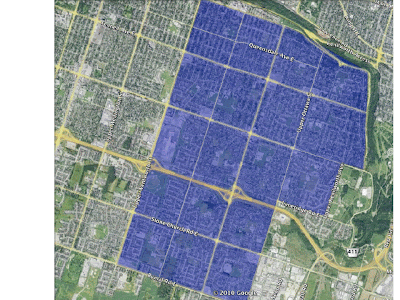In the market today, there are flexible options about your home. Shall we rent, buy or Rent to Own our home? Well, It all depends on your own situation.
Rent
Everybody may have heard this before: if you’re paying
monthly rent, as opposed to a monthly mortgage, you are essentially throwing
your money away. However, in many situations, to rent a home is much more
advantageous than own one.
1.
You don’t have to come up with the thousands of
dollars in down payments, closing costs and fees such as housing inspections,
legal counsel, land transfer taxes and insurance. Not to mention your monthly
mortgage payment. Most mortgage payments are applied a large portion to the
interest, not the capital. This is money that you won’t get back when you sell
your home.
2.
You can’t always rely on getting a big tax break
which is supposed to be one of the greatest advantages of owning a home. If
your annual mortgage interest payment, plus any other deductions you are
entitled to, isn’t greater than standard tax reductions, you will not receive
any tax benefit from owning a house. However, if you rent a home, you’ll always
receive some sort of tax relief, as a large portion of your rent is tax
deductible every year.
3.
The enormous amount of flexibility that renting
provides cannot be overlooked. You can pack up and leave immediately at the end
of the lease. You don’t need to worry about waiting to sell and housing market
recession.
4.
If by any chance you face financial
difficulties, the financial devastation that comes with losing your home is far
greater than being evicted from your apartment.
Buy
Are you ready to buy a house?
1.
Find out whether you have a budget to cover all
home related costs, i.e. Mortgage,
utilities and maintenance.
2.
Whether you have a sizable down payment. To get your foot in the door, you’ll need a
down payment worth 20% of the home price. That means for a $500K home, you’ll
need $100,000 upfront. You may get lower
low-down loans, but those options will cost you extra and normally come with
higher interest rates. If the market
changes or your personal circumstances change and you’re forced to sell, you
will lose money if you made little or no down payment. Plus, you need to set aside 1.5% - 3%.
3.
Whether you have a steady source of income.
Buying a home is a long-term financial commitment, so you’ll need a consistent
cash flow to cover those monthly payments.
If you have a contract job, you need to take a good look at your future
cash-flow abilities.
4.
Do you have an emergency savings fund?
You are one step closer to being prepared for
homeownership if you have enough money to cover three to six months of your
living expenses. You may choose to buy mortgage insurance that can cover the
mortgage in cases of a serious illness, unexpected layoff or even a natural
disaster that prevents you from working.
For more information, please check the
Canada Mortgage and HousingCorporation (CMHC) website.
5.
Have you had your debts under control? Mortgage
lenders usually will take a look at your debt-to-income ratio before they give
you a mortgage. In general, they want to
ensure that your monthly housing costs – including principal, interest, taxes
and insurance – will consume no more than 1/3 of your monthly gross income.
Plus, your total debt payments, including your mortgage, credit cards, student
loads and auto loans, will remain below 38% of your total pay. Therefore, if
you have large outstanding debts, try to pay them down before applying for a
mortgage to make sure you can qualify for as much money as you’ll need.
Do you have a good credit history? The higher
score you get the lower interest rate you may receive. For more information,
please check the credit score chart.
6. Do
you have a good credit history? The higher score you get the lower interest rate
you may receive. For more information, please check the credit score chart.
Rent to Own
What happens if you decide to purchase a home but do not
have enough down payment or can’t get a mortgage? Instead of staying renting,
there is an alternative option – Rent to Own - to help you own your home today.
The benefits of Rent-to-Own your own
home far outweigh those of renting. Here are some of the reasons:
1.
Build equity on your own home over time. In
general, houses tend to appreciate every year. Think about it, your landlord is
building equity on his property, the same property that your are paying the
rent for. Instead of putting more money in his pocket, why not add it to yours?
2.
Lock the home price and accumulate your down payment
now rather than later. If you Rent to Own your home today, you can negotiate a
future purchasing price and you can also choose to start set aside certain
amount of rent as your credit towards your down payment. For more information,
please check
how Rent to Own homes work.
3.
Build your credit or repair your bad credit. For
those who never have any credit history or those deal with challenging credit situation,
Rent-to-Own is a good way to build or repair your credit. Normally it will take
2 or 3 years to build healthy credit history dependent on your credit score.
For more information, please check the
credit score chart.
4.
Start to stay at your future home today. Be your
own boss and do the upgrades and improvements that you couldn’t do when renting. If you Rent-to-Own your home, most likely you
can have pets living with you.













